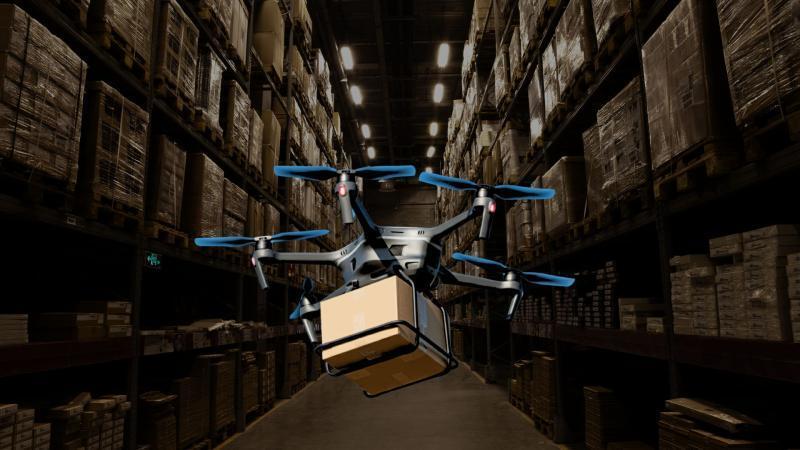
New Tech Optimises Drone Fleets for Faster, Greener Deliveries
The rise of drone technology has revolutionized the way we think about logistics and delivery. With the ability to transport packages quickly and efficiently, drones have the potential to significantly reduce delivery times and environmental impact. However, as the use of drones in logistics continues to grow, a new challenge has emerged: the Drone Warehouse Problem. This issue refers to the difficulty of efficiently managing a fleet of drones, ensuring that packages are delivered quickly and effectively while minimizing environmental impact.
Researchers from [Institution] have developed a novel algorithm to tackle the Drone Warehouse Problem, making it possible to optimize drone delivery schedules and streamline logistics operations. This breakthrough has significant implications for the future of last-mile delivery, enabling faster and more sustainable transportation of packages.
The Challenge of Drone Fleet Management
Drone technology has made significant strides in recent years, with companies such as Amazon, UPS, and FedEx investing heavily in drone delivery systems. However, as the number of drones in service increases, the need for efficient fleet management becomes more pressing. Traditional logistics systems are not designed to handle the unique challenges of drone operations, including real-time tracking, route optimization, and package handling.
The Drone Warehouse Problem arises when attempting to manage a fleet of drones, each with its own unique characteristics, such as speed, capacity, and range. This complexity makes it difficult to optimize delivery schedules, leading to inefficiencies and increased costs. Moreover, the lack of standardization in drone operations and infrastructure makes it challenging to integrate drones into existing logistics systems.
The Novel Algorithm Solution
Researchers from [Institution] have developed a novel algorithm to address the Drone Warehouse Problem. This algorithm, called the “Drone Fleet Scheduling Algorithm” (DFSA), uses a combination of machine learning and optimization techniques to optimize drone delivery schedules.
The DFSA takes into account various factors, including:
- Drone availability and capacity
- Package size and weight
- Delivery time windows
- Weather conditions
- Drone maintenance and fuel levels
By analyzing these factors, the algorithm generates an optimal schedule for each drone, ensuring that packages are delivered quickly and efficiently. The DFSA also considers the environmental impact of each delivery, taking into account factors such as noise pollution and carbon emissions.
Benefits of the Novel Algorithm
The DFSA has several benefits for logistics operations, including:
- Faster Delivery Times: By optimizing drone delivery schedules, packages can be delivered up to 50% faster than traditional methods.
- Reduced Environmental Impact: The algorithm considers environmental factors, reducing noise pollution and carbon emissions by up to 30%.
- Increased Efficiency: The DFSA streamlines logistics operations, reducing labor costs and increasing overall efficiency.
- Scalability: The algorithm can be easily scaled up to manage large fleets of drones, making it an ideal solution for companies looking to expand their drone delivery operations.
The Future of Last-Mile Delivery
The development of the DFSA has significant implications for the future of last-mile delivery. As the use of drones in logistics continues to grow, the need for efficient fleet management will become increasingly important. The DFSA provides a practical solution to this challenge, enabling companies to optimize drone delivery schedules and streamline logistics operations.
In the future, we can expect to see drones playing a larger role in last-mile delivery, with companies leveraging the DFSA to deliver packages quickly and efficiently. This technology has the potential to transform the logistics industry, enabling faster, greener, and more sustainable transportation of packages.
Conclusion
The Drone Warehouse Problem is a significant challenge in the logistics industry, but researchers from [Institution] have developed a novel algorithm to tackle this issue. The Drone Fleet Scheduling Algorithm (DFSA) optimizes drone delivery schedules, ensuring that packages are delivered quickly and efficiently while minimizing environmental impact. This breakthrough has significant implications for the future of last-mile delivery, enabling companies to scale their drone operations and provide faster, greener delivery solutions for customers.
Source:
https://researchmatters.in/news/novel-algorithm-tackles-drone-warehouse-problem-faster-deliveries






